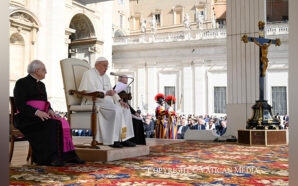June 5 is the United Nations’ World Environment Day
Some days seem just too large to think about. This year, many people may find World Environment Day too big a stretch for minds still adjusting to bushfires and coronavirus and the way these things have reduced our world to our immediate street and suburb and to the next lifting of restrictions. The environment is too big to think about, and the world too difficult to imagine. Our concerns and our space are entirely local.
Despite this, however, coronavirus should draw our attention beyond our local concerns to our great environment. The trillions of diverse viruses that colonise the cells of living beings are part of our environment. Some give us grief; most are walled off from the human world. Alterations in the human environment, including the intrusion of human beings into the habitat of wild animals, allowed them to penetrate our cells with incalculable consequences. The virus itself seems to have moved from animals into human beings in places where people ate the flesh of wild animals. In the case of the virus, our lack of respect for the natural environment of which we are part has devastated our built environment.
The coronavirus has also focused our attention on the human environment, and on the ways in which we shape our relationships with one another and with the natural world. World Environment Day encourages us to reflect on these relationships too. In the human world, greed is like a virus that affects societies and destroys our respect for the natural environment. It destroys the rich and delicate network of interlocking relationships that shape human beings into the communities in which all can prosper. It does this by taking over individuals and turning them into rogue competitors with one another. Like the coronavirus, greed is the prick that penetrates and enters the cells of the human spirit and arms it against others. It leads people to duplicate the effects of greed on their spirit in their human interactions with the world, so destroying the delicate sets of relationships that keep it in balance and support human life.
The virus of greed destroys the environment by producing gross inequality, in which some people amass enormous wealth while others live in poverty. The exploitation of the natural world causes pollution of waterways and the destruction of people’s livelihood. It impoverishes people, who then further stress the environment by destroying vegetation for firewood and crowding together in crowded, unsewered housing. It creates the conditions for more severe global warming.
World Environment Day, then, is vital to keep in mind as we think of rebuilding our society. Will we build it, and eventually destroy it, by founding it on greed? Or will we build it on respect for the environment of which we all are part? At Jesuit Social Services we are committed to ensuring that our programs, practices, relationships and our reflection embody that respect.
Fr Andrew Hamilton SJ writes for Jesuit Communications and Jesuit Social Services.








